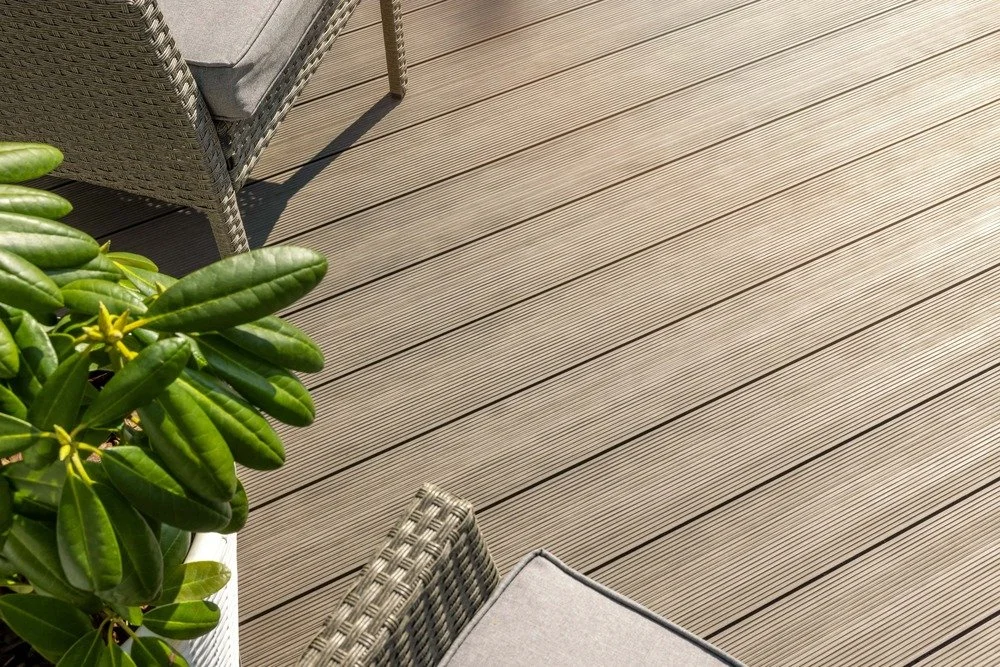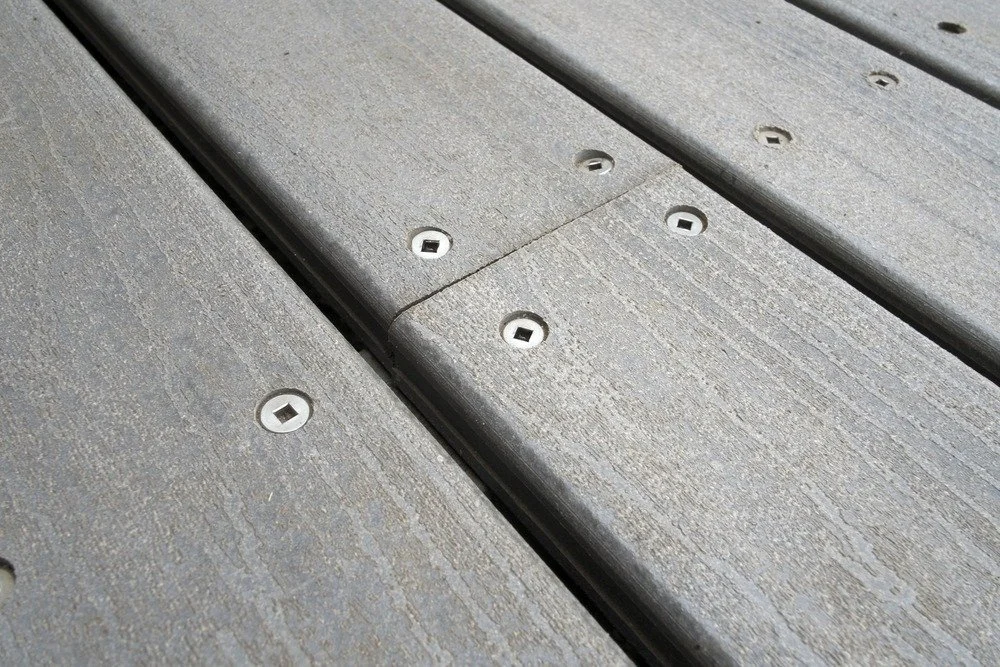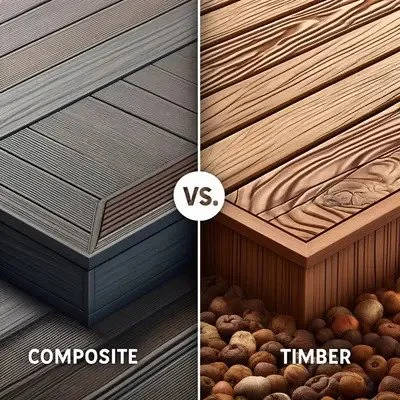Composite Decking: Should You Consider It For Your Decking Project?
Composite Decking: A Lifetime Warranty Product, Built To Last.
Written & Fact Checked Greg Hair from SLIDE Living in Albury-Wodonga NSW. (May 2024)
Are you looking for a sustainable outdoor deck solution that looks great, requires no oiling and has a lifetime guarantee? Consider composite decking for your outdoor living space.
Introduction
Composite decking is becoming an Australian favourite for busy families and individuals looking for a durable alternative to standard UV-resistant timber decking that requires little maintenance! This article discusses the benefits (and disadvantages) of composite decking, with the intention of giving you all the information you need to decide whether this type of decking is the right choice for you.
What Is Composite Decking?
Composite decking is a strong and easy-to-care-for alternative to traditional wood decking. It's made by mixing wood fibres and plastics and often includes recycled materials.
These decking boards have a wood and plastic composite core and are covered with a protective plastic layer. This coating helps them withstand harsh weather conditions, bugs, and decay, so they don't need as much maintenance as wood.
Composite decking is environmentally friendly and comes in many colours and styles that look like different types of wood. While it might cost more initially, its long-lasting nature and low upkeep make it a money-saving choice in the long run.
What Are The Key Benefits Of Composite Decking?
Durability and Longevity: Composite decking is highly durable and resistant to fading, staining, cracking, and rotting, greatly extending its lifespan compared to traditional timber decking.
Lifetime Warranty: Many composite decking options come with a comprehensive lifetime warranty that covers material defects, fading, and stain damage, offering long-term security and peace of mind.
Low Maintenance: Unlike wood decking, composite materials do not require regular painting, staining, or sealing, saving time and maintenance costs over the deck's lifetime.
Slip Resistant: Composite decks are designed with textures that help make them slip-resistant, which is particularly beneficial in wet or icy conditions.
Extensive Range of Colour Options: Composite decking is available in many colours and styles that look like different kinds of wood. This variety lets you choose the perfect look for your deck without having to paint or stain it.
Choosing The Right Brand
In Australia, several trusted composite decking suppliers are well-known for their high-quality composite decking products.
These reputable Australian brands include:
Maintenance and Care for Composite Decking
Wash with soap and water a few times yearly to keep it clean.
Avoid harsh chemicals or rough scrubbers.
Move furniture around to prevent unevenness.
Remove leaves and twigs regularly to prevent mould from growing.
Composite vs Traditional Timber Decking: Cost Difference
Composite deck boards generally cost more to install than traditional timber decking because they use advanced, durable materials. However, even though timber decking might be cheaper initially, it needs more care, such as regular staining, sealing, and repairs, which can make it more expensive over time.
On the other hand, composite decking solutions don't need much upkeep, which can save money in the long run.
While composite decking might cost more initially, it could be cheaper over time, depending on how much you want to spend on maintenance.
“We are so glad we chose composite instead of timber for our family deck. It’s perfect and we enjoy it most summer nights! ”
Conclusion
In conclusion, choosing high-quality composite decking is wise for homeowners who want a beautiful, durable outdoor space. Although it's initially more expensive than traditional timber, the benefits make it worth the cost.
Composite decking lasts longer, needs less upkeep, stands up to weather, and wears better than wood. Opting for composite decking with a lifetime warranty adds even more value. This warranty shows the manufacturer's trust in their product and protects your purchase, ensuring your deck stays in great shape for many years.
Investing in high-quality composite decking with a solid warranty will save you money over time and enhance the enjoyment and value of your home.
If you'd like to speak with an outdoor living specialist regarding your composite decking project, get in touch with SLIDE Living for a free quote and siting.
FAQ
-
Composite timber decking is favoured for its durability and low maintenance compared to natural timber, which requires more upkeep to avoid issues like splintering and staining.
-
The cost of composite decking in Australia can vary from $350 to $700 per square metre.
-
Most manufacturers do not recommend painting or staining composite wood decking because it is available in various colours and finishes and is designed to last without needing these treatments.
-
Yes, many composite decking options are designed to be slip-resistant, which makes them safer in wet conditions.
-
Like any outdoor surface, composite decking has significantly darker colours and can get warm in the sun.
-
While it is possible for a DIY enthusiast to install composite decking, manufacturers recommend professional installation to ensure it meets performance standards and maintains warranty coverage.
-
Pros: Composite decking is durable, low maintenance, and resistant to fading, staining, and rotting. It comes in various colours and does not require painting or staining.
Cons: It can be more expensive upfront, can get hot in direct sunlight, and while it resists scratches, it's not entirely scratch-proof.
-
The main negatives of composite decking include the higher initial cost than wood decking and the potential for the material to retain heat, making it sometimes warm to walk on in direct sunlight.
-
Yes, you can install a pool using Composite deck boards. Composite decking is moisture-resistant, which makes it suitable for poolside applications. However, ensuring the deck structure is designed to handle the weight and moisture exposure is essential.
-
Composite decking typically has a slip-resistant texture. However, like most surfaces, it can become slippery when wet, primarily if mould or mildew builds up. Regular cleaning is recommended to maintain its slip resistance.
-
No, composite decking does not need to be sealed. It's designed to withstand the elements without sealing, staining, or painting, which are typical maintenance tasks for wood decks.
-
Installing composite decking directly over old wood decking is generally not recommended. A stable and level substructure is crucial for the composite decking to perform well, so any damaged or uneven wood decking should be repaired or replaced first.
-
Composite decking is designed to be durable and resistant to scratches. However, it can still be scratched by heavy furniture or sharp objects. Some high-quality composite decking options offer enhanced scratch resistance.
-
Yes, composite decking can be installed over concrete, provided there is adequate drainage and ventilation to prevent water accumulation underneath the decking. It's often installed on a sleeper system to ensure stability and airflow.







